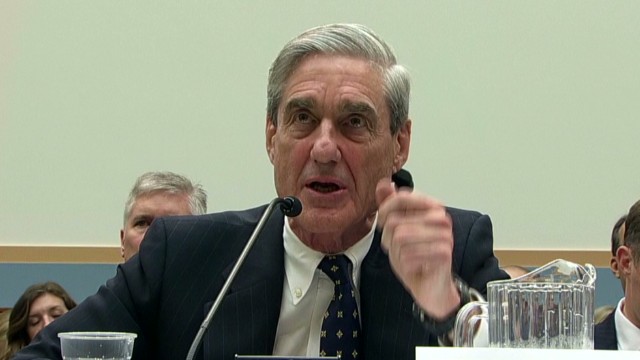
Mueller: 'No content' taken from calls
Facebook said it got between 9,000 and 10,000 requests targeting between 18,000 and 19,000 accounts during that period.
"These requests run the
gamut -- from things like a local sheriff trying to find a missing
child, to a federal marshal tracking a fugitive, to a police department
investigating an assault, to a national security official investigating a
terrorist threat," Ted Ullyot, Facebook's general counsel, said in a post
"With more than 1.1
billion monthly active users worldwide, this means that a tiny fraction
of 1% of our user accounts were the subject of any kind of U.S. state,
local, or federal U.S. government requests."
The disclosure comes amid
a firestorm over revelations that both were among companies that turned
over user data to the National Security Agency's web surveillance
program.
The U.S. government has a
sweeping system for monitoring emails, photos, search histories and
other data from major American Internet companies, including Facebook,
Microsoft, Google and Skype.
More transparency
Both companies got
government permission to publish the reports as long as they were
grouped with all others requests, including from state and local
agencies. The grouping of the data made it hard to single out those made
for national security reasons.
Google publishes a transparency report using requests from governments worldwide. It said grouping information is a "step back" for users.
"We have always believed
that it's important to differentiate between different types of
government requests," Google said in a statement. "... Our request to
the government is clear: to be able to publish aggregate numbers of
national security requests, including FISA disclosures, separately."
Facebook said it has been in talks with U.S. officials to seek greater transparency on national security-related orders.
In an effort to combat criticism, Microsoft also disclosed information on its data requests Friday night.
"For the six months
ended December 31, 2012, Microsoft received between 6,000 and 7,000
criminal and national security warrants, subpoenas and orders affecting
between 31,000 and 32,000 consumer accounts from U.S. governmental
entities (including local, state and federal)," said John Frank,
Microsoft's vice president.
Both companies said the information they were allowed to publish falls short of what users need to better understand the issues.
"We are permitted to
publish data on national security orders received, but only if
aggregated with law enforcement requests from all other U.S. local,
state and federal law enforcement agencies," Frank said.
Obama administration
officials have pushed back against criticism on the domestic
surveillance in the aftermath of the classified leaks last week that
disclosed details of covert surveillance programs.
Edward Snowden, 29, has admitted leaking the classified documents about the covert programs.
Top-secret program
 FBI Dir.: Snooping might have stopped 9/11
FBI Dir.: Snooping might have stopped 9/11
The top-secret program
is legal, conducted properly and could have helped detect a 9/11
hijacker had it been in place before the 2001 terrorist attacks, FBI
Director Robert Mueller said Thursday.
 Holder: Leaks 'extremely damaging'
Holder: Leaks 'extremely damaging'
Civil liberties groups
and legislators are among critics condemning the program as government
overreach beyond the intention and limits of the Patriot Act originally
passed in the aftermath of the 2001 attacks.
 Vetting federal contractors
Vetting federal contractors
"It's my fear that we
are on the verge of becoming a surveillance state, collecting billions
of electronic records on law-abiding Americans every single day," said
Rep. John Conyers of Michigan, the ranking Democrat on the judiciary
panel.
Conyers said he is
co-sponsoring legislation that would address "the overbreadth and
impenetrability of the surveillance programs."
Wrong public perception?
But legislators of both parties joined Mueller in defending the programs.
"This program does not
target innocent Americans in any way, shape or form," said House Speaker
John Boehner, an Ohio Republican. "These programs have helped keep
America safe. They have enhanced our ability to go after terrorists who
want to bring harm to the American people."
Democratic Sen. Bill Nelson of Florida said public perception of the government data mining was wrong.
One of the programs,
under Section 215 of the Patriot Act, collects billions of phone records
to create a database for use in tracking suspected terrorists. Another
under Section 702 of the Patriot Act deals with computer activity and
other information of foreigners.
No comments:
Post a Comment